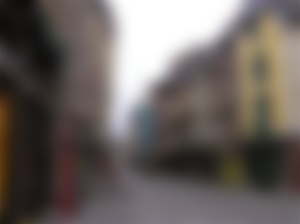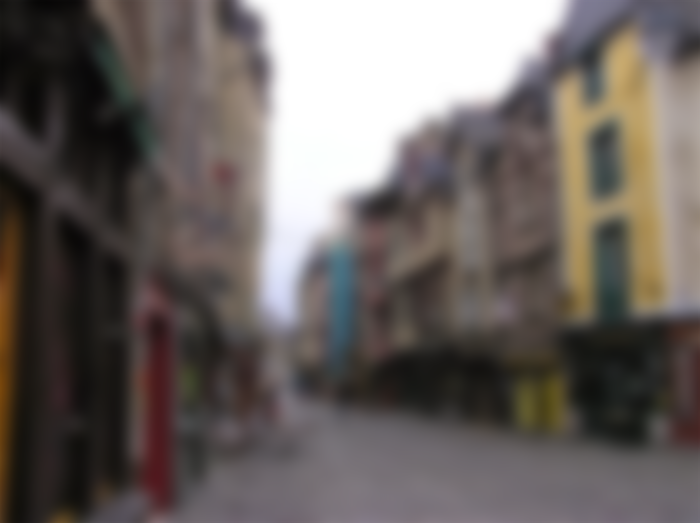In 2001, just before the Twin Towers collapsed, I got lost in Europe with my four year old son.
Literally lost. Being Australian, one cathedral looked the same as the next. One cobbled streets was indistinguishable from the next. My boy held tightly onto my hand and looked at me. 'Mummy', he said. 'Why do you always get us lost?'. He liked security and knowing exactly where he was, my lad. He was fine with travelling alone with his mother on the other side of the world, so look as he knew where he was going. Unfortunately for him, he had a mother rarely had an itinerary, and often left home without a map. If you don't remember days before Google Maps, in the olden days we used paper maps that didn't shout at us in tinny voices when we walked the wrong way up an alley. They got wet in the rain, coffee stained and torn, and if you didn't know which way was north, you could most definitely become lost.

Unfortunately for my security loving son, I liked getting lost.
Getting lost meant finding places that were not in the Lonely Planet. The Lonely Planet was a guide book thicker than the bible that was equally worshipped, full of places to stay and things to do. The rebel in me hated being told where to stay and what to do. I wanted to discover for myself. It used to be very easy to get lost. One simply turned down a street and went against the flow of tourists and shoppers. Eventually, one might find oneself observing life on the outskirts of guidebooks. Washing flapping from blue tiled houses in Lisbon. A silver jewellery store in an alley in Barcelona. An orange tree in the middle of the square where we ate the best kebabs. A seat outside a market to observe the comings and goings of ordinary people, eating queso fresco on crackers on our laps. A flock of geese in a tiny chapel. Two great danes trotting alone past a wall of graffiti. Shared quail eggs with a devout follower of Islam who explained the beauty of his religion. It felt richer and more beautiful than paying yet another fee for a museum or a church, and less costly of course.
Travel helped my brain find new ways of seeing. We overrate how delightful it can be to remap grey matter, creating new neural pathways. It kept my brain supple and flexible, adaptable and receptive to change. It kept me motivated and inspired, zinging with the fascination that diversity sparks. It helps me move past fears, stepping outside of my comfort zone. It made me creative, philosophical, curious and alive. Whilst I might have pushed the boundaries of 'travel' to step into the 'lost' zone, being lost simply accentuated all the benefits that travel itself offered.
Eventually, my son understood my philosophy of the richness of being lost, and the rewards it brings. He came to trust in the process, and know that one is never really lost as long as they are capable of observing where they are in relation to the sun, or asking a local in pigeon local language peppered with English and mime.
Now, in 2021, I walk the streets of my town in disconsolate circles.
In 2001, the Twin Towers collapsed, and the world changed. Our personal and psychological maps changed along with it. No longer did my world seem entirely safe. Being lost in Europe as a single mother seemed an irresponsible thing to do. It would not last forever: two years later, I'd return to Europe again, and find ways to get lost again. But the world had irrevocably changed.
Twenty years later, and our maps would change again with the pandemic. Borders would shut. It would be no longer possible to freely travel and lose oneself without maps in foreign countries. Worse, we would be ordered to stay in the domestic maps of our own households, well trodden and known.
It's late July and my state has experienced it's fifth lockdown. Law dictated that we not move more than five kilometres from our home. I long for the wild spaces that no longer seem to exist: places free of cameras, of police, of border patrols and fines. I long for being somewhere unknown, unmapped, uncontrolled, unsurveilled. I worry that the only place left that is truly free is our own minds. Yet even those are beholden to the cartographers of the state and media that demand our attention, remapping our psychology to suit their agenda.
In one of the previous lockdowns, someone even created an easy way to map how far 5 kilometres is with a simple program. You can check how far 5 kilometres is from you here. If you are in a city, there is a lot in your five kilometre radius. If you are in rural Australia like me, much of it is either fenced farmland and small town streets, and a few tracks along a river. How I wish my five kilometres began ocean side, where my mind could drift for centuries on rolling waves.
These limited maps are also influencing our memories, giving us little changed context as reference points for where we are in time. What day is it, we ask? Did I just have a deja vu, or am I living the exact same moment, a veritable groundhog day? We slip into delirium, irritable and depressed. We long for travel. We long for freedom. We mourn for maps that are ours, and endless, and full of possibility. We lose hope. We feel less alive.
A five kilometre radius is a tiny and claustrophobic map for one who likes to be lost.
<hr>
<hr>

trully way to merge with the city, and feel it =)